Inherit the Wind (1960)
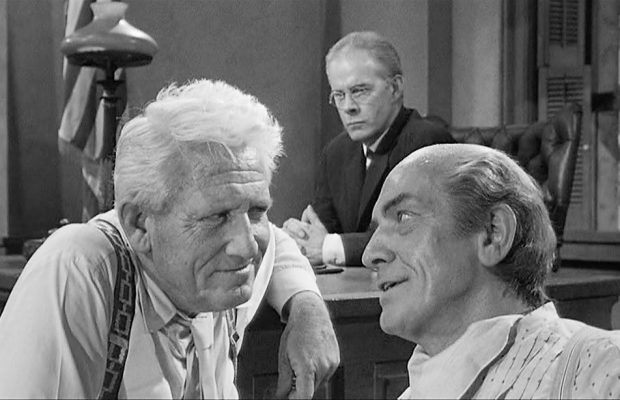
Toronto Film Society presented Inherit the Wind (1960) on Monday, April 21, 1986 in a double bill with The Power and the Glory as part of the Season 38 Monday Evening Film Buffs Series “B”, Programme 10.
Production Company: United Artists. Producer and Director: Stanley Kramer. Screenplay: Nathan Douglas and Harold Smith, based on a play by Jerome Lawrence and Robert E. Lee. Photography: Ernest Laszlo. Editor: Frederic Knudtson. Music: Ernest Gold. Wardrobe: Joe King. Sound Engineer: Joe Lapis. Production Design: Rudolph Sternad.
Cast: Spencer Tracy (Henry Drummond), Fredric March (Matthew Harrison Brady), Gene Kelly (E.K. Hornbeck), Florence Eldridge (Mrs. Brady), Dick York (Betram T. Cates), Donna Anderson (Rachel Brown), Harry Morgan (Judge), Elliott Reid (Davenport), Philip Coolidge (Mayor), Claude Akins (Reverend Brown), Paul Hartman (Meeker), Jimmy Boyd (Howard), Noah Beery, Jr. (Stebbins), Gordon Polk (Sillers), Ray Teal (Dunlap), Norman Fell (Radio Announcer), Hope Summers (Mrs. Krebs), Renee Godfrey (Mrs. Stebbins).
Inherit the Wind is based on the 1925 Scopes “Monkey Trial” in Dayton, Tennessee in which a school teacher was arrested and put in the dock for acquinting his students with Darwin’s evolutionary theories. Fredric March’s role of Matthew Harrison Brady is moulded on William Jennings Bryan, bombastic, silver-tongued orator and three-time Presidential candidate who, as a fundamentalist, prosecuted the case. Spencer Tracy’s character of Henry Drummond is based on Clarence Darrow, famed criminal lawyer who defended the young teacher and pleaded the cause of reason and freedom of thought. Gene Kelly’s role of E.K. Hornbeck, a cynical newspaperman who is out to drum up as much sensationalism as he can and gets his paper to retain Drummond to defend the teacher, is moulded on legendary writer-iconoclast H.L. Menken.
A bitter courtroom clash between Fundamentalism and Darwinism ensues, with Drummond skillfully undermining Bryan’s credibility and driving him to collapse in the witness chair–much to the delight of Hornbeck. Drummond excoriates the cynical Hornbeck for his lack of compassion, and declares that Brady, for all his faults, had the right to his opinions and had the courage to express them. Brady’s wife (Florence Eldridge) nails him down even more pointedly when she tells a doubting young girl (Donna Anderson) that at least he stood for something, and how many people could say that?
Stanley Kramer produced and directed the film, which was based on the 1955 play starring Paul Muni (in the Tracy role), Ed Begley (in the March role), and Tony Randall (in the Kelly role). March made himself up to closely resemble the legendary Bryan, complete with bald pate and flamboyant mannerisms. March’s real-life wife Florence Eldridge was on hand to play his faithful screen wife. Tracy, as usual, underplayed, and elected, for reasons of contrast, to get his character across in a simple, direct manner, leaving the more colorful pyrotechnics (as was warranted) to March, who, also as usual, came through with flying colors.
This was the first and only film Tracy and March appeared in together, and there was much excitement over the pairing of the two double-Oscar winners. They did not disappoint their admirers, playing their scenes together with an exciting complementary aplomb, each achieving his own well thought-out effects without infringing on the other’s territory.
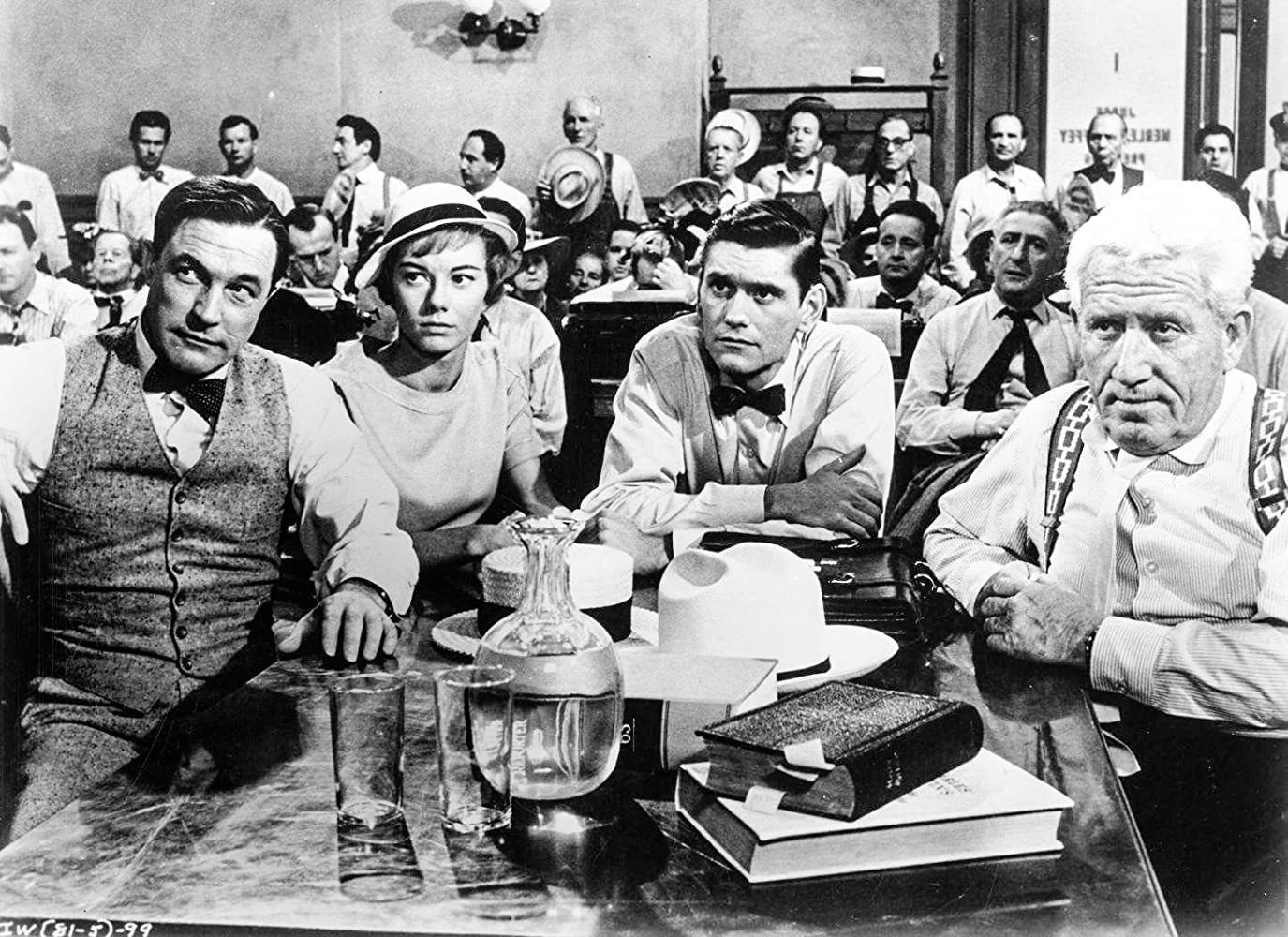
The critics wrote as follows:
Ivan Spear in Boxoffice: “Spencer Tracy as Darrow has the more sympathetic role but he is kept from stealing too many scenes by the consummate talents of Fredric March, who compensastes with every trick in the histrionic bag, with subtle gestures and facial expressions, for what his part lacks in warmth.” Films in Review: “Fredric March actually looks like Bryant and enlivens his portrayal with little mannerisms which may not have been Bryan’s but suggest aspects of his psychology. Florence Eldridge is very winning in a much smaller role. Spencer Tracy plays the Darrow character with his usual sincerity, which is not as uncouth and calculating as Darrow’s essentially was.” Bosley Crowther in The New York Times: “One of the most intelligent, respectable and entertaining motion pictures of the year…Mr. Kramer has wonderfully accomplished not long a graphic fleshing of his theme but he has got one of the most brilliant and engrossing displays of acting ever witnessed on the screen. Mr. March’s extraordinary makeup and assumption of the mannerisms of Bryan is mainly a dividend for those who remember what Bryan looked like. The artistic virtue of it is that it gives a stunning comprehension of a proud, pompous, demagogic man, full of dogmatic assertion and theatrical flourishes who stands serenely encircled by ignorance until the locks of his mind are forced…Mr. Tracy gives a fine, forceful simulation of a home-spun advocate of good sense…since the clash of Mr. March and Mr. Tracy is not only the crux of the film but is also brilliantly, unsurpassably and fascinatingly played, it is the triumph of the picture.”
Sources: The Films of Spencer Tracy by Donald Deschner;
The Films of Fredric March by Lawrence J. Quirk
Notes by Harry Purvis

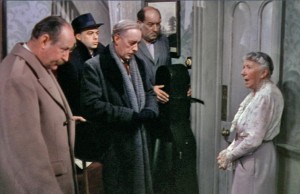
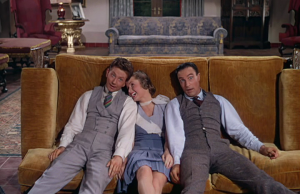
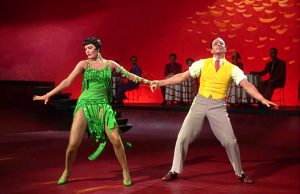






Leave a Reply